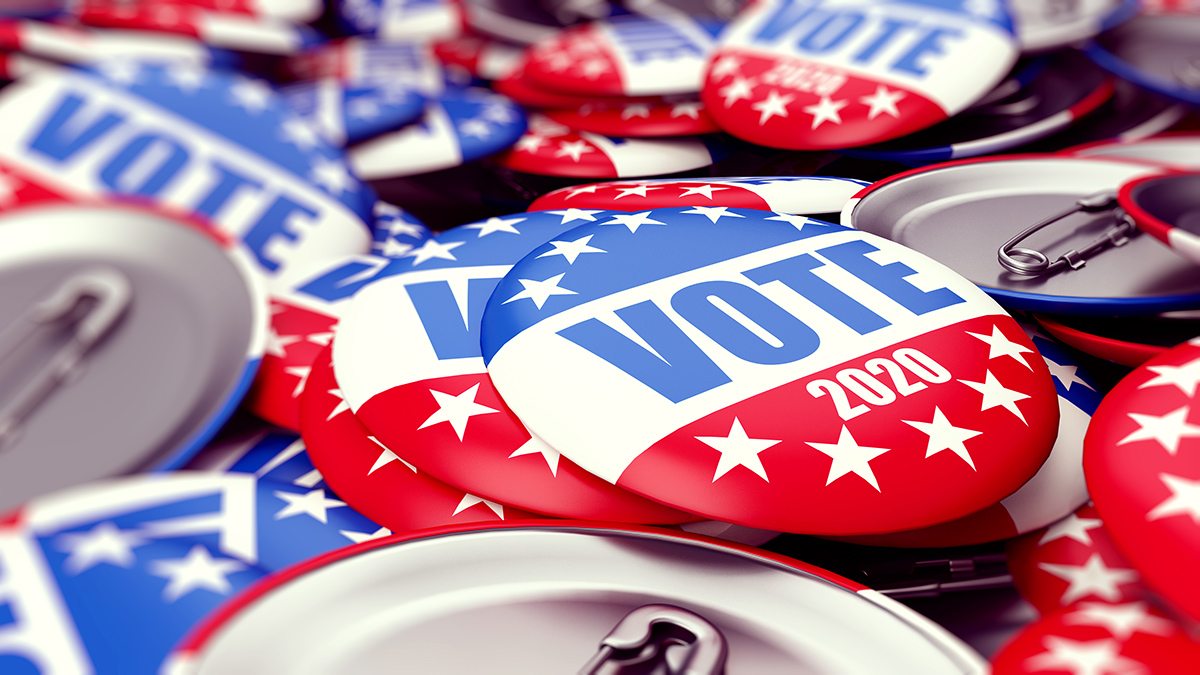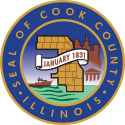Cook County Deputy Clerk John Mirkovic focuses on securing the electronic voting systems from election hacking
Enigma Forensics, CEO Lee Neubecker and Cook County Deputy Clerk John Mirkovic discuss election hacking and measures that have been taken to help secure Cook County for the upcoming 2020 Election scheduled for November 3rd, 2020. The two discuss past hacking attempts during to 2016 election cycle on the Democratic National Committee, including phishing attacks that compromised numerous campaign workers.
Lee Neubecker (LN): Hello, today I have John Mirkovic from the Cook County Clerk’s Office. He’s the deputy clerk and he oversees all the technology and communications working with Karen Yarbrough, and today I’m going to be talking to him about protecting the vote from cyber attacks. First, I wanted to start off by recapping what happened in 2016. Hillary Clinton’s Campaign Chairman, John Podesta, was phished with an email on March 19, 2016. And what had happened is he forwarded an email to a staffer that had replied with a typo. The staffer said this is a legitimate email versus what the staffer should have said is this is an illegitimate email. So he did the right thing by checking first, but he probably should have picked up the phone and not relied on email. So then he went and he clicked through and reset his password. And the type of attacks that are happening right now is such that when you click a link, sometimes it will pretend to be Office365 or Google, and it will want you to put your username and password in so that you can see the document. Well, in fact, those sites are getting your credentials for later cyber attacks, or they’re trying to put malware on your computing device. So what happened after that? In April 2016, hackers created a fake email account and spearfished 30 Clinton staffers. They sent a spreadsheet that had the name Hillary-Clinton-favorable-rating.xlsx and that attachment was designed to make the staffer want to click. So these are social engineering attacks on campaign staff. And then later DCLeaks was registered, and all these emails were published and put out there, which was very damaging and probably changed the outcome of the election in 2016. So I have John here, and John, I want to ask you, what steps has the Cook County Clerk taken to prevent similar attacks here in Cook County?
Securing Electronic Voting
John Mirkovic (JM): Well, I think one is that we don’t make it so easy that you can change credentials via one email that way. So, what happened to Mr. Podesta, it would have required a few more steps in our agency, which is usually good, I guess, but it was such a clever attack. There’s almost no way to stop something that clever, and that relies on someone’s sense of urgency and emotion. So we, in our office, we work with Cook County on our email servers, so we would reach out to a different office to work with that. So the ability to make it hard to change emails, for example, you know, it can be frustrating sometimes but you know, you realize when you build those layers up if they frustrate you that means they’re going to frustrate an attacker as well so that’s one way.
LN: So deployment of frustration, a government staple, right?
JM: Yeah, the old help desk.
LN: Well, having these processes in place though, by design they help protect people and make it more difficult for hackers to get in. So that’s great. There’s been a lot of talks about potential hacks coming on election day, should voters be concerned that their vote’s going to be hacked on election day?
JM: I think they should be more concerned about the disinformation campaign that is going on about hacking voting machines in Illinois, and that we have the misinformation from nebulous foreign state actors, but they’re actually people in this country who are being paid. You know, they think they’re working for a news agency, but it’s some shell and all they’re doing is spreading misinformation, especially in Illinois. You know, we’ve had to refute notions that our ballot marking devices are connected to the internet and that anybody can get in there. So to answer your question, we use a lot of layers of security and some of them, and the main one is we don’t even give ourselves the ability to update these machines on election day or in the field, which again that frustrates us, but we also know that if there’s no way to communicate with those machines by us even, then no one else can, so.
LN: Isn’t there also a simultaneous paper audit trail for the voting machines?
JM: Yeah, so voters in suburban Cook County should be really happy with the system we have in Illinois, which requires a paper backup of every vote. So voters in the suburbs may remember, I don’t know if they had them in the city, but they may remember the sort of receipt paper printers that were built into the machines and they would kind of scroll really quick and show you what you voted for, but it really wasn’t user-friendly, so.
LN: John, just finally, should voters be concerned about election equipment being hacked on election day?
JM: Well, you know, depends where they live. If they live in a state that isn’t as committed to security, I think that people should ask questions and these are the right types of questions to ask, and if you live in a state and you find out your ballot marking device or voting machine is connected to the internet, you should be worried about that. In Illinois, that is not the case and we don’t even use the open internet for any transmission of data, we use secure cellular networks that can work one-way communications and send encrypted data that cannot be tampered with in transit. So voters should ask questions and, but they should also be mindful of who’s causing them to ask questions, and if that person is playing on their emotions.
LN: Great. Do you think that early voting and vote by mail will help reduce the potential impact of election day hacking?
JM: Yeah, I believe so. If you think about centralized versus decentralized targets. You know, an election where you have ballots being cast in 400,000 different locations, as opposed to 1,000, that’s a bigger attack vector and harder to, you know, for a foreign adversary to manipulate really. So it’s really, a mail election sort of really makes it hard for a hacker to find a way to get in there, so I think that vote by mail does make election safer.
LN: Great. Well, thanks a bunch for being on the show, I really appreciate you taking the time to come on.
JM: Thank you, Lee.


